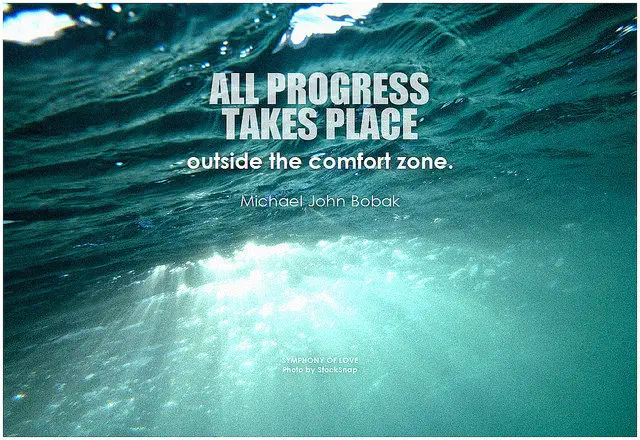Jonathan Dodd’s latest column. Guest opinion articles do not necessarily reflect the views of the publication. Ed
I’ve been thinking about comfort zones lately. I suppose nobody had any idea what these things were once upon a time, until someone invented them. Or at least, somebody stuck a label on them, and they were with us for ever.
That’s what discovery is all about. Nobody invented electricity, it was always there. Someone noticed it, and found a way of grabbing it and using it. Mostly we don’t know what to do with stuff to begin with, and we make fools of ourselves. Like electricity. A man named Franz Mesmer used to take a machine to parties with a spinning metal ball, and he gave people electric shocks and made their hair stand up on end. Now we have self-driving electric cars and machines that answer our questions.
You could say the same about America. Nobody invented America, they just stumbled on it, without even knowing what it was. That’s why we have the West Indies, because Columbus thought he had discovered a way to China when he landed on Cuban soil. And all those so-called ‘discoverers’, who planted flags and claimed the ‘Newfoundland’ for their kings and countries and rich merchants, forgot to ask the obvious question – “Who does this actually belong to?” Like finding a wallet on the pavement and claiming it for yourself, as if it had lain there for centuries, just waiting for anyone to decide it was theirs.
He only got a Strait named after him though
America was named after Amerigo Vespucci, who went west ten years after Columbus, and deducted that it was a ‘New World’, rather than the Orient. Then, twenty years later, Ferdinand Magellan sailed right round the southern coast of South America and across the Pacific, on the first expedition to sail right round the world. He only got a Strait named after him though. I suppose if you had been an inhabitant of that world, and people appeared waving things and talking a load of gobbledy-gook, you would have taken their beads and hoped they might go away, without realising you had just sold your entire country to them and everybody in it, and that they would be followed by millions of others, voluntarily or otherwise.
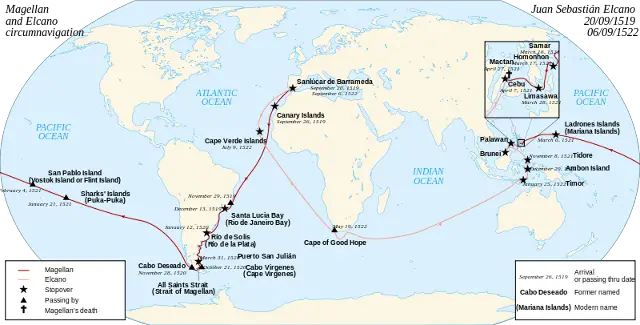
You probably think I’m straying from the point, having started with Comfort Zones, but I haven’t strayed at all. Back in the late 15th Century, there was an idea about, which suggested that the Earth was actually round, like a ball, rather than a nice flat plate, and that you could sail across the ocean and find a quicker way to reach China, which we had discovered rather belatedly by sailing the other way. But there was still a lot of worry about falling off the edge, so it took real courage to commit to finding out. That’s just a big challenge to a big comfort zone. Apart from the usual terrors and dangers of any voyage then, there was the additional fear of the unknown.
The Danes won after all
I think these early explorers were amazingly brave. No matter that Europeans had probably been going back and forth for centuries, on the quiet, like the Danes. They didn’t count because their country didn’t have sophisticated technology and communications, and advanced social organization, and they didn’t have the backing of newly-victorious kings and queens, looking for further glory after ousting the Moors from Spain. They also didn’t have a new merchant class who wanted to get very rich off the proceeds of all that lovely trade. Come to think of it, William the Conqueror was a Dane himself, whose family conquered Normandy before turning their attention to England. So they won after all.
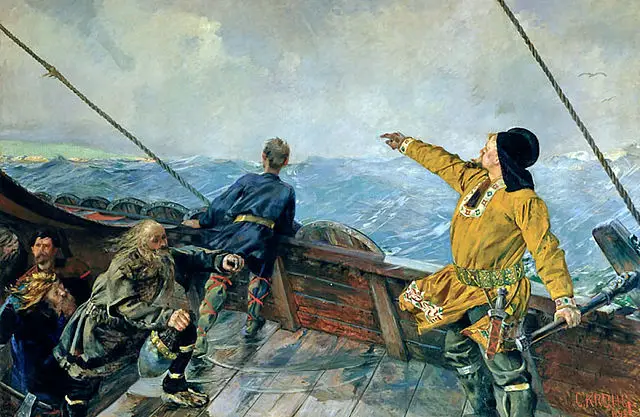
Europe was completely settled, divided into countries, and it was looking to expand. Some people just wanted to stay at home, drink some ale and contemplate the wall by the fire. They had their comfort zones right there. But others needed to get out there and boldly go. Humankind has always been like that. We’re the only species that asks that sort of question, and decides, each one of us, whether we want a challenging life or not. Of course, Life itself might decide whether we’re going to be challenged or not, but we decide whether we want to struggle or snuggle, and we spend our lives evading or looking for danger, or adventure, or just a good party with lots of booze. I’ve always known this, and I can classify everyone I know into one of those groups, but I have no idea why we subdivide that way.
It’s going to be a sea of ghastliness
I used to think it was all genetic, and that someone will discover adventurous genes, which will be only one step away from designing the ultimate human adventures. They’re already modelling that phenomenon in all those computer games, they just haven’t (officially?) started creating real humanoid persons like that. Let’s face it, our future is going to be very complicated, with the sort of changes created in our DNA and seeping into the real population that will make our obsession with race seem like child’s play. I remember a wonderful film called District 9, in which aliens landed in South Africa and were herded into an area, and universally blamed by the locals for everything. Blacks and Whites united against Aliens.
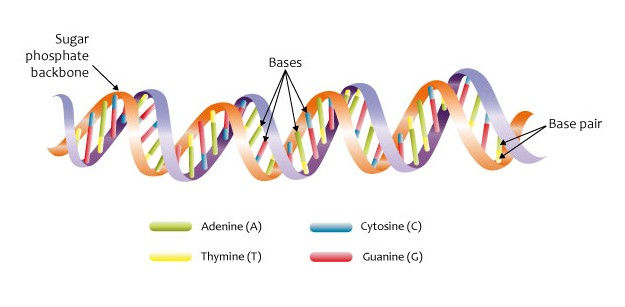
We’re going to have that sort of problem. We think we have problems now with athletics cheats, but those governments who only want to win will already have clandestine programmes to breed athletes and probably modify them to be stronger and faster than anyone else, and there will have to be tests to see if their DNA has been tampered with. It’s going to be a sea of ghastliness. Our comfort zones have not anticipated this, or any of the other changes that have or will happen to us, because that’s the problem with comfort zones.
It’s never the deity that enforces the status quo
The definition of a comfort zone should include the phrase – ‘Comfort Zones are predicated on the assumption that the conditions that allow the comfort zone to exist will continue indefinitely into the future”. This, as we can see all around us, is patently unlikely. Some of humankind’s worst crimes have been committed in the name of comfort zones, and the attempt to stop change or new knowledge, as if that was possible. Usually it’s all dressed up in the idea that what we believe was handed to us by some deity, and we mess with that status quo with impunity. Oddly enough, it’s never the deity that enforces the status quo, it’s the people who stand to lose the most, as in the high priests and those who want to become high priests.

My bad news in this column is that all our loved comfort zones are going to disappear, so we shouldn’t get too comfortable. Life doesn’t like comfort. I think that’s a scientific concept too, but they talk about inertia or something. Your sofa will break. Your hearing will go, so you’ll have to keep turning the volume up on the TV. Your lovely country cottage will have its view ruined by the new hyperloop tube. Your lovely planet will stop co-operating with your CO2 emissions and mess with the weather. We have people who try to keep us on our toes, but we give them the deaf ear, and we have people who tell us that we’re fine, it’s all a load of lies, and sometimes, shamefully, we pretend to believe them and we even vote for them, because we’re scared and we don’t want to believe it.
Reality doesn’t take much notice of opinions
Other opinions are available, of course, that may vary in detail or content with this analysis. Opinions are useful as long as they’re based on something tangible, but reality doesn’t take much notice of opinions. When it comes to dealing with Life, I prefer viewing reality as it is, rather than through the rose-tinted glasses of my comfortable opinions. Nobody was saved from the Titanic by their opinions. That’s what lifeboats are for. Or actually, following warnings and using lookouts, rather than changing course to go faster. I believe the owner ordered that one. I believe the owner was successfully rescued from a relatively-empty lifeboat too. Hmmm!
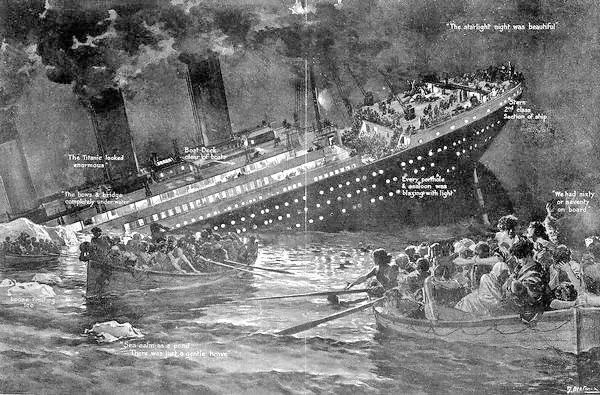
The trouble with talking about comfort zones as a thing to avoid is that you’re always going to be confronted by a wall of apathy and casual disbelief. The Movie business keeps churning out disaster films, and we go along with our popcorn and watch the planet getting blown up, or maybe just a tall building, and we’re unaffected, because it’s entertainment. None of us actually believe that any of this could ever happen. Nobody ever believes that any war is going to be all over by Christmas, and that’s just the way it is. I know this. Sometimes I think I might be spending too much time and effort thinking about it. Sometimes I wonder whether there’s any point, because I do fundamentally believe that we’re a pretty tough species, and we’re clever. We’ll find ways to adapt and survive in any environment, if we need to. Just think about all the places on this planet that we’ve found ways to live in. It’s just that there are too many of us.
The ‘Somebody Else’s Problem Field’
We have a great propensity to avoid adding the obvious into whatever equation we’re working on, and the elephant in the room is usually very obvious in all but the obvious one, in that nobody can see it. It’s like that wonderful story of the Emperor’s New Clothes, and Douglas Adams invented the ‘Somebody Else’s Problem Field’, which describes something that nobody sees because they don’t want to, or can’t, or just refuse to. We all do that. We can’t supply any examples, obviously, because we can’t see the things we can’t see, and the things we can’t see happen to be the things we don’t want to see. It’s all very convenient.
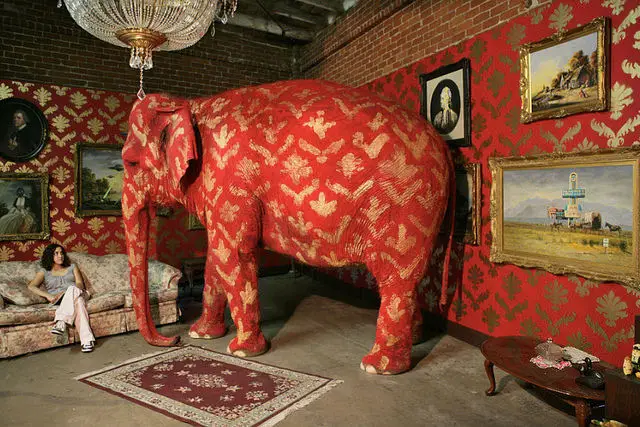
Sometimes I think we’re far more competent at avoiding any problems out there than we are if we set our minds to fixing things. And there’s no need to worry, it’s all right. Everything will turn out fine in the end. It always does. In the same way that history is always written by the victors, it’s only the survivors that get to enjoy tomorrow.
If you have been, thank you for reading this.
Image: pictoquotes under CC BY 2.0
Image: Semhur under CC BY 2.0
Image: public domain
Image: Genomics Education Programme under CC BY 2.0
Image: Archibald Tuttle under CC BY 2.0
Image: Public Domain
Image: dullhunk under CC BY 2.0

